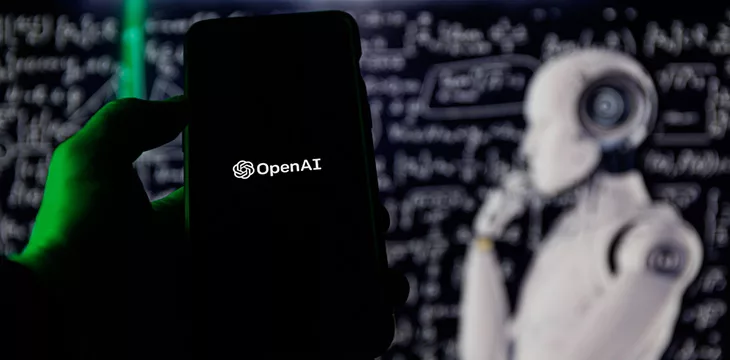|
Getting your Trinity Audio player ready...
|
ChatGPT developer OpenAI is reportedly weighing a litany of options to solve the challenge of an artificial intelligence (AI) chip scarcity.
Top on the list for OpenAI is the option of building its own AI chips from scratch or expanding its existing partnership with hardware providers like NVIDIA (NASDAQ: NVDA), according to a Reuters report. The company has been mulling over a third option—acquiring a chip manufacturer to power its short-term objectives.
Amid its trouble with regulators, OpenAI is deal with an acute shortage of chips, putting a dent in its ambitions to finetune its API, offer a dedicated capacity offering, and rollout a longer 32k context. The report noted that OpenAI has recently conducted its due diligence into a potential acquisition, but the identity of the chip manufacturer remains under wraps. While the acquisition options seem a rational route, there are several bottlenecks that the firm will need to scale through.
A proposed acquisition could attract antitrust regulators to the deal, given recent moves by the U.K.’s Competition and Markets Authority (CMA) and a raid on NVIDIA’s Paris offices over anti-competitive practices in the AI and semiconductor sector.
There is also the time frame challenge with an acquisition process billed to run to take months and even years, creating a stumbling block for OpenAI’s short-term objectives.
Plans to build a custom chip plant from scratch are expected to gulp a fortune in a move that industry players say could fail to live up to its expectations. In the event that OpenAI proceeds to build its chips, the move will see the company join the ranks of Google and Amazon, a handful of tech firms designing their chips in-house.
Furthermore, attempts to lean on its existing partnership with NVIDIA face its fair share of issues, with NVIDIA reportedly grappling to meet global demands.
NVIDIA is expected to deliver its advanced AI chips to Saudi Arabia, the United Arab Emirates (UAE), the United Kingdom, and private enterprises across Europe. Growing demand for AI chips has seen NVIDIA’s value soar beyond $1 trillion, dwarfing the highs during the demand for GPUS to power digital currency mining activities.
Solutions outside the border
After weeks of interfacing with global regulators, OpenAI CEO Sam Altman urged South Korea to increase its investment in AI chip manufacturing plants as a way to get skin in the game. Altman seized the moment to reveal his firm’s readiness to invest in local startups dabbling in AI and semiconductors.
“We are exploring how to increase our investment in Korean startups,” said Altman. “We are excited to meet as many as we can here today. I think this type of collaboration is essential to our work.”
A global AI arms race has triggered a cold war between the U.S. and China as other world powers scramble to stack chips. A blanket trade restriction by U.S. authorities forced China’s hand to impose tighter restrictions on the export of chipmaking raw materials.
In order for artificial intelligence (AI) to work right within the law and thrive in the face of growing challenges, it needs to integrate an enterprise blockchain system that ensures data input quality and ownership—allowing it to keep data safe while also guaranteeing the immutability of data. Check out CoinGeek’s coverage on this emerging tech to learn more why Enterprise blockchain will be the backbone of AI.
Watch: Konstantinos Sgantzos Talks AI and BSV Blockchain with CoinGeek

 02-21-2026
02-21-2026 




